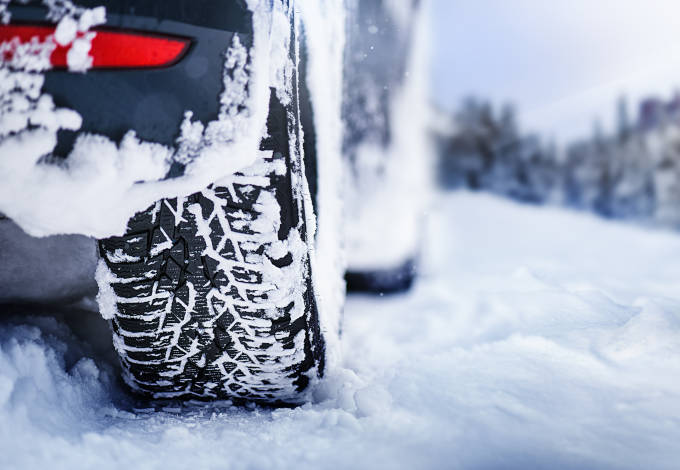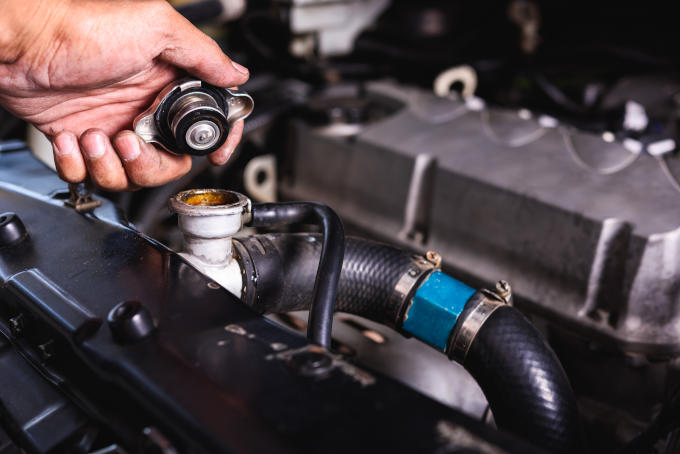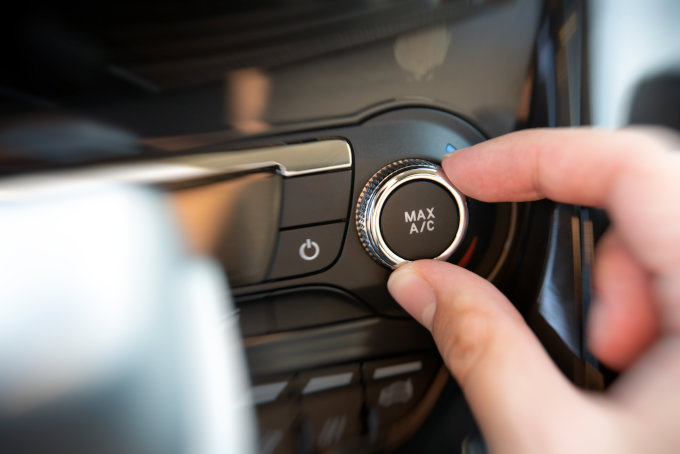Originally published on 01/21/2020
Updated on 01/10/2025
The weather outside is about to get frightful—and while winter wonderlands look beautiful, they also come with their share of challenges for drivers. Did you know that 17% of car crashes happen in winter conditions? But don’t let that keep you huddled indoors. With some preparation, you can keep your car safe, reliable, and ready for anything winter throws your way!
If you’re the type who’s always on the go, you’ll want to winterize your car for the colder months. Not sure where to start? No worries! Here’s a guide to help you beat the weather woes and winterize your car effectively.
1. Change Your Wiper Blades
Rain, snow, and sleet can make visibility tricky in the winter, so it's essential to start with fresh wiper blades. Worn-out wipers can’t clear your windshield effectively, which could compromise your view and safety.
Changing wiper blades is simple, and they’re affordable too. For especially harsh conditions, consider winter wiper blades designed to handle ice and snow buildup. They’ll ensure you have the clearest view possible, even during the worst winter storms.
2. Top Off Your Wiper Fluid with Winter-Grade Solution
Having new wiper blades is great, but they’re only as effective as the fluid that supports them. Make sure to fill your reservoir with wiper fluid that’s rated for freezing temperatures. This type of fluid contains antifreeze, so it won’t freeze in the reservoir or on your windshield.
When temperatures drop, regular wiper fluid can freeze, leaving you without a clear windshield. Winter-grade fluid ensures that your wipers stay functional in even the coldest conditions.
3. Check and Prepare Your Car Battery
Winter temperatures can significantly impact your car battery. In fact, extreme cold can decrease the efficiency of lead-acid batteries by up to 50%! This can leave you stranded if your battery isn’t up to the challenge.
Inspect your battery for any corrosion and make sure the connections are secure. If it’s been a few years since you replaced your battery, consider getting it tested. Replacing an older battery before winter hits can save you from a frustrating no-start situation on a cold morning.
4. Change to Winter-Appropriate Engine Oil
The composition of engine oil thickens in cold weather, which can strain your engine. Check your car’s owner’s manual to see if a lower-viscosity oil is recommended for winter use. Winter-grade oil flows more easily in cold conditions, helping your engine start smoothly.
5. Inspect Your Tires
Your tires are your car’s primary contact with the road, so they need extra attention before winter. Cold weather reduces tire pressure, which affects traction. Use a gauge to check the air pressure in each tire and adjust it to the recommended level for winter driving.
Also, inspect the treads for wear. Worn-down treads can’t grip icy or wet roads effectively. If the treads are low, it’s time to replace them—consider winter tires if you live in an area with significant snowfall.
6. Consider Switching to Winter Tires
All-season tires are versatile, but they may not provide the traction needed for heavy snow or icy roads. Winter tires are specially designed to grip the road better in low temperatures, snow, and ice. In some regions, winter tires are required by law during certain months, so check the regulations in your area.
Winter tires have deeper treads and softer rubber compounds that stay flexible in the cold, giving you better control and braking ability in snowy or icy conditions.
7. Put Together an Emergency Kit
Even the most prepared drivers can encounter unexpected situations. Having an emergency kit can be a lifesaver in case you get stranded or have to wait for roadside assistance. Your kit should include:
- Flashlight and spare batteries
- Jumper cables
- Warm blankets and extra clothing
- Ice scraper and small shovel
- First aid supplies
- Non-perishable food and water
- Antifreeze and windshield washer fluid
- A phone charger
Keep this kit in an easily accessible place in your car, so you’re prepared for whatever winter might throw your way.
8. Schedule a Professional Winterization Check
If you’re short on time or just want peace of mind, consider scheduling a winterization check at AAMCO Overland Park. Our experts can handle everything from battery testing to tire checks, and we’ll make sure your car is fully prepared for winter.
We also run diagnostics to check for any trouble codes in your car’s computer system and handle repairs as needed. A professional vehicle check ensures you’re not overlooking any potential issues that could leave you stranded in the cold.
Drive Confidently This Winter
Winterizing your car doesn’t have to be a daunting task. By following these steps, you’ll help your vehicle perform reliably through the season. Take the time to prep now, so you can enjoy safer and smoother drives—even when the weather gets frightful.
Need a hand with winterizing? Schedule an appointment with AAMCO Overland Park, and our certified technicians will get your vehicle winter-ready.










